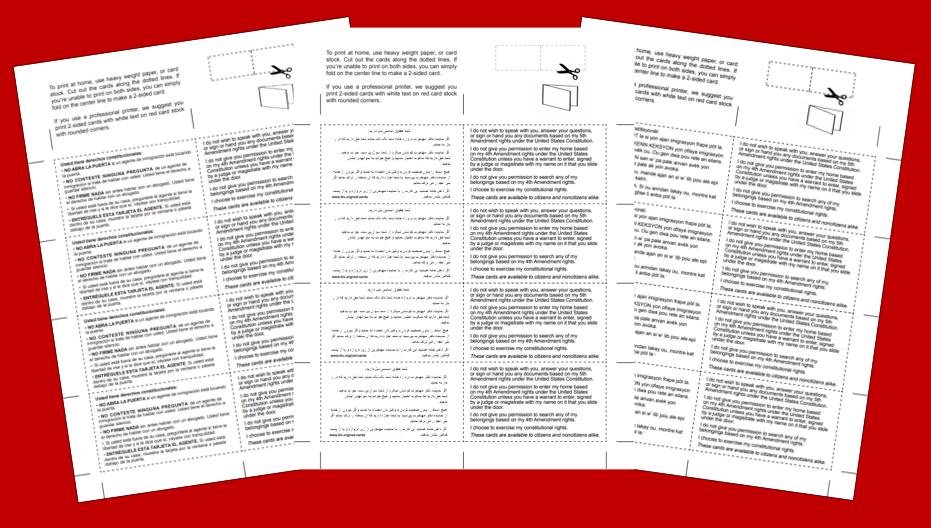KNOW YOUR RIGHTS
Red Cards Assert Rights and Protections to All People in the U.S.
All people in the United States, regardless of immigration status, have certain rights and protections under the U.S. Constitution. The Immigrant Legal Resource Center Red Cards and the ACLU give examples of how people can exercise these rights. However, MSEA General Counsel Kirsty Anderson underscores that they do not provide individualized legal advice. Community members are encouraged to check in with a trusted legal service provider for questions about their situation.


Carry a Know Your Rights Red Card For best results, visit ilrc.org/redcard to print, trim, and fold your own Red Card. You can print these cards yourself on heavyweight paper at a copy shop using the pre-formatted 8.5×11 sheet at ilrc.org/red-card. They are available in 19 languages, including at left, Spanish, Pasho, and Haitian Creole.
Remain silent and refuse to answer questions. It’s your right under the Constitution.
Don’t answer questions about your immigration status or history.
Do not provide any documents unless they are required by warrant, signed by a judge.
Do not sign anything.
If you are arrested or detained, immediately request an attorney. It’s your right.
Don’t lie or give false documents. Lying or providing false information can have serious consequences.
Memorize emergency contact phone numbers in case you lose your phone.
Inform your family and friends of your arrest or detention. Make sure they know where you are and how to contact you.
Stay calm and do not resist. Do not run away or try to physically stop the agents.
Document the encounter. If possible, record the encounter on your phone or ask someone else to do so.
If you are told you are free to leave, walk away calmly.
Don’t let fear dictate your actions. It’s important to know your rights and exercise them, even if you are feeling scared or intimidated

